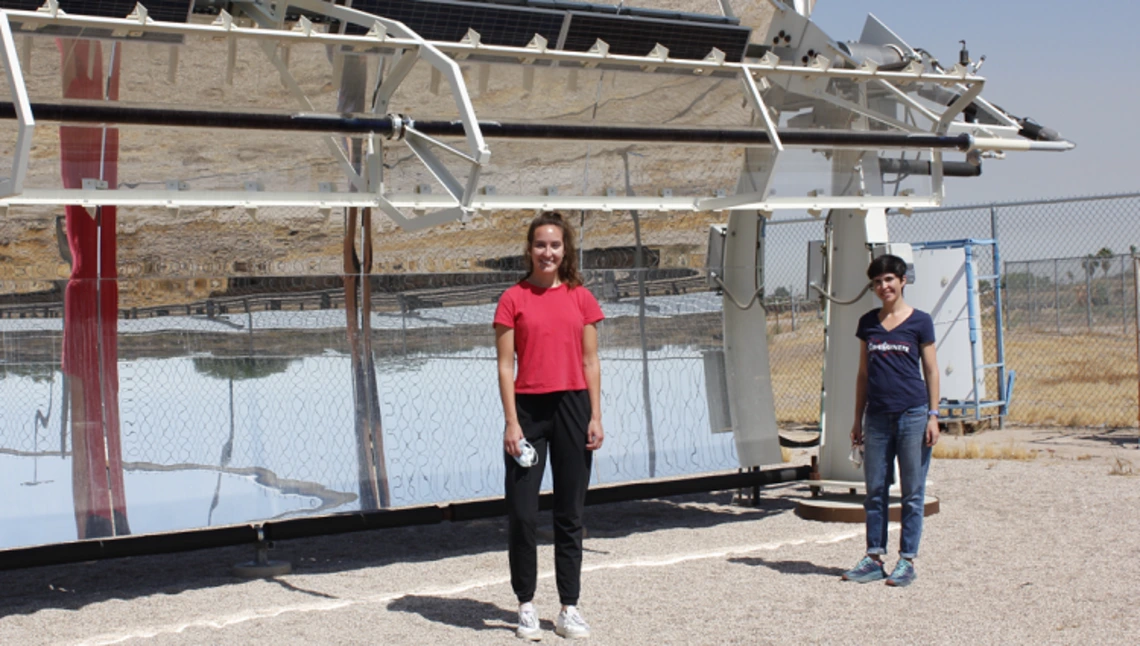Hickenbottom Developing Solar-Powered Desalination System

A $500,000 grant from the Department of Energy is supporting development of a solar-powered desalination system to recover water from concentrated waste streams with maximum efficiency. CHEE assistant professor Kerri Hickenbottom is principal investigator of the project, which uses less energy at a lower cost, and it could provide more water for resource-scarce inland regions such as Arizona.
Reverse osmosis is one of the most common methods for purifying saline water, but the process produces limited results. About 20% to 50% of the water that enters the system remains as a concentrated waste stream.
There are several existing methods for handling concentrate streams, including injecting the waste into isolated underground wells and using ponds with very large surface areas to efficiently evaporate the water. However, most of these methods are expensive, time consuming and energy intensive. Hickenbottom's work combines several types of technologies – including concentrated solar power, photovoltaics and membrane distillation – to recover water from these concentrated waste streams.
"The benefit of using both CSP (concentrated solar power) and PV (photovoltaics) is that we can double the energy efficiency compared to existing thermal desalination systems that just use PV or CSP," Hickenbottom said. "This off-grid system will use renewable energy resources to transform the way we manage high-salinity concentrate typically considered as waste streams."
